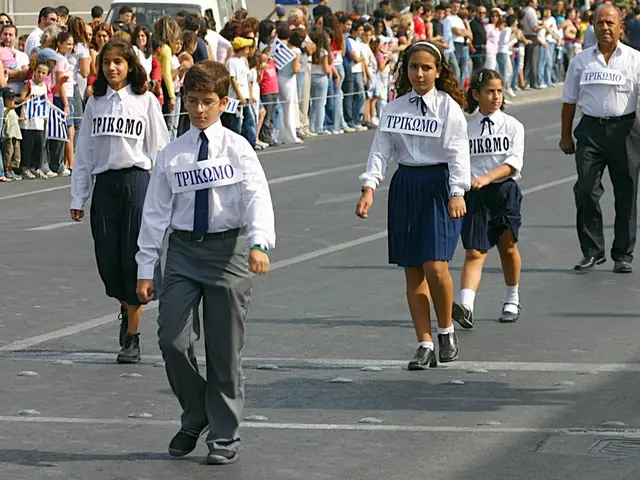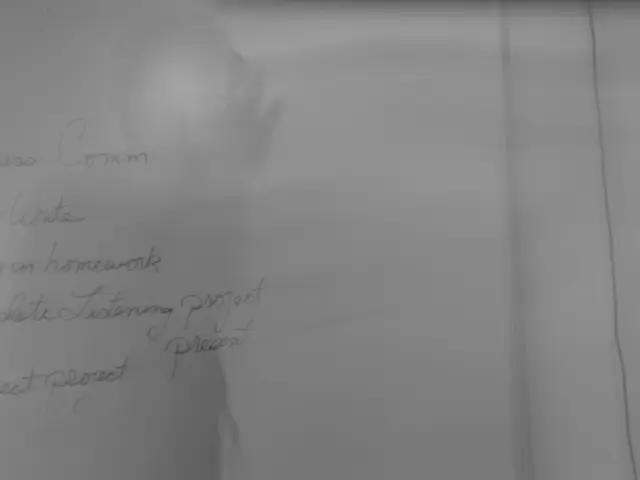High Cost and Inefficiency Plague Albania's Detention Centers - Analysis of Financial Burden and Inefficiency within Deportation Facilities in Albania
In the heart of Albania, a migrant expulsion center in Gjader has become a focal point of controversy, with questions surrounding its legality, efficiency, and cost.
Operational since 2023, the Gjader facility, with a capacity of 400 places, has been a subject of debate due to its high cost. According to reports, the center has incurred expenses of around 74.2 million euros, making it one of the most expensive migrant detention and removal instruments in Europe.
A joint investigative report by ActionAid and the University of Bari raises concerns about the management and effectiveness of the center. Despite this significant investment, the report suggests that the centers are inefficient, adding to the controversy surrounding them.
The legality and ethics of Italy's practice of transferring migrants to Albania centers like Gjader have been called into question. Italy's top court has expressed doubts that the deal complies with both Italian constitutional law and EU law, particularly the Return Directive and the Asylum Procedure Directive. Italy has even suspended the interception and transfer of asylum seekers to Albania temporarily pending a final ruling by the courts.
Legal challenges focus on whether it is permissible under EU law to transfer migrants to a third country (Albania) without a concrete plan for their return and whether asylum seekers transferred there can be properly protected, given the non-EU context. There are also worries that detention in these centers might violate rights by restricting asylum seekers’ access to proper procedures since Albania is not an EU member.
The opposition leader, Elly Schlein, has been vocal about the issue, describing the project as "pure propaganda on the skin of the weakest," paid for by Italians. Schlein called on Prime Minister Giorgia Meloni to apologize for the project, stating it is an insult to struggling Italians and a propaganda tool at the expense of the weakest.
The Italian government, under Prime Minister Meloni, has been using expulsion centers abroad since 2023. The focus of an investigative report by ActionAid and the University of Bari is on an expulsion center in Gjader, Albania. However, the number of returns from the center has been at its lowest in years, according to the report. During the operation period, only 20 people were held at the Gjader center, all of whom were released within hours.
As the European Court of Justice prepares to decide on the legality of the model on August 1, the future of this repatriation arrangement remains uncertain. The core issue is whether countries like Albania can be considered safe countries of origin for expulsion. Italy is awaiting court decisions that could shape the future of this contentious policy.
- Despite Italy's expenditure of 74.2 million euros on the Gjader migrant expulsion center in Albania, the center's efficiency has been questioned, with reports suggesting it has been inefficient, leading to further controversy.
- The legality of transferring migrants to non-EC countries like Albania, such as the Gjader facility, has been Investigated by the European Court of Justice, with concerns about rights violations, return plans, and proper protection for asylum seekers.
- The Italian government's use of expulsion centers overseas, like Gjader, has drawn criticism from opposition leaders like Elly Schlein, who views the centers as exploitative and a tool for propaganda against struggling Italians.




